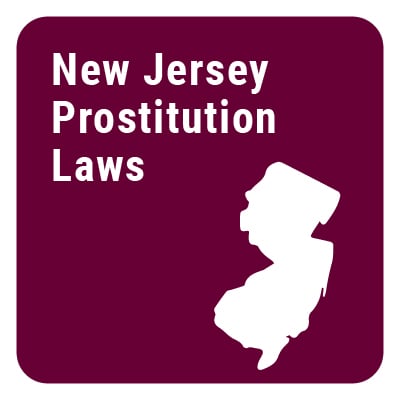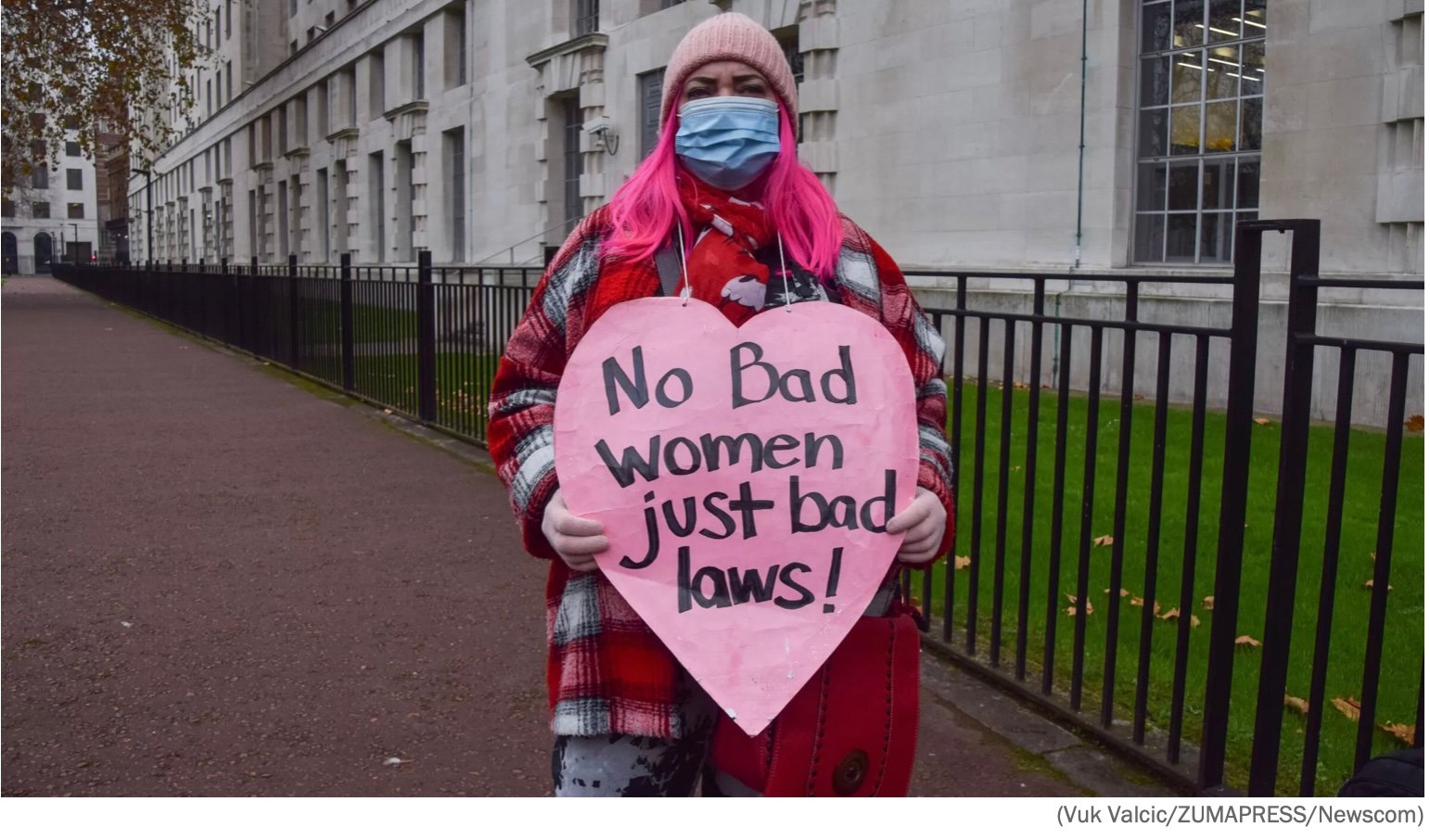Is prostitution legal in New Jersey?
New Jersey prostitution laws state that it is a crime to engage in acts of prostitution by offering or accepting to engage in a sexual act in exchange for compensation.
Prostitution Laws of New Jersey
- 2C:34-1: Prostitution and Related Offenses
- 2C:34-1.1: Loitering for the purpose of engaging in prostitution

2C:34-1: Prostitution and Related Offenses
a. As used in this section:
(1) "Prostitution" is sexual activity with another person in exchange for something of economic value, or the offer or acceptance of an offer to engage in sexual activity in exchange for something of economic value.
(2) "Sexual activity" includes, but is not limited to, sexual intercourse, including genital-genital, oral-genital, anal-genital, and oral-anal contact, whether between persons of the same or opposite sex; masturbation; touching of the genitals, buttocks, or female breasts; sadistic or masochistic abuse and other deviate sexual relations.
(3) "House of prostitution" is any place where prostitution or promotion of prostitution is regularly carried on by one person under the control, management or supervision of another.
(4) "Promoting prostitution" is:
(a) Owning, controlling, managing, supervising or otherwise keeping, alone or in association with another, a house of prostitution or a prostitution business;
(b) Procuring an inmate for a house of prostitution or place in a house of prostitution for one who would be an inmate;
(c) Encouraging, inducing, or otherwise purposely causing anotherto become or remain a prostitute;
(d) Soliciting a person to patronize a prostitute;
(e) Procuring a prostitute for a patron;
(f) Transporting a person into or within this State with purpose to promote that person's engaging in prostitution , or procuring or paying for transportation with that purpose; or
(g) Knowinglyleasing or otherwise permitting a place controlled by the actor, alone or in association with others, to be regularly used for prostitution or promotion of prostitution , or failure to make a reasonable effort to abate such use by ejecting the tenant, notifying law enforcement authorities, or other legally available means.
b. A person commits an offense if:
(1) The actor engages in prostitution ;
(2) The actor promotes prostitution ;
(3) The actor knowingly promotes prostitution of a child under 18 whether or not the actor mistakenly believed that the child was 18 years of age or older, even if such mistaken belief was reasonable;
(4) The actor knowingly promotes prostitution of the actor's child, ward, or any other person for whose care the actor is responsible;
(5) The actor compels another to engage in or promote prostitution ;
(6) The actor promotes prostitution of the actor's spouse; or
(7) The actor knowingly engages in prostitution with a person under the age of 18, or if the actor enters into or remains in a house of prostitution for the purpose of engaging in sexual activity with a child under the age of 18, or if the actor solicits or requests a child under the age of 18 to engage in sexual activity. It shall be no defense to a prosecution under this paragraph that the actor mistakenly believed that the child was 18 years of age or older, even if such mistaken belief was reasonable.
c. Grading of offenses under subsection b.
(1) An offense under subsection b. constitutes a crime of the second degree if the offense falls within paragraph (3) or (4) of that subsection.
(2) An offense under subsection b. constitutes a crime of the third degree if the offense falls within paragraph (5), (6) or (7) of that subsection.
(3) An offense under paragraph (2) of subsection b. constitutes a crime of the third degree if the conduct falls within subparagraph (a), (b), or (c) of paragraph (4) of subsection a. Otherwise the offense is a crime of the fourth degree.
(4) An offense under subsection b. constitutes a disorderly persons offense if the offense falls within paragraph (1) of that subsection except that a second or subsequent conviction for such an offense constitutes a crime of the fourth degree. In addition, where a motor vehicle was used in the
commission of any offense under paragraph (1) of subsection b. the court shall suspend for six months the driving privilege of any such offender who has a valid driver's license issued by this State. Upon conviction, the court shall immediately collect the offender's driver's license and shall forward it, along with a report stating the first and last day of the suspension imposed pursuant to this paragraph, to the New Jersey Motor Vehicle Commission.
d. Presumption from living off prostitutes. A person, other than the prostitute or the prostitute's minor child or other legal dependent incapable of self-support, who is supported in whole or substantial part by the proceeds of prostitution is presumed to be knowingly promoting prostitution.
e. It is an affirmative defense to prosecution for a violation of this section that, during the time of the alleged commission of the offense, the defendant was a victim of human trafficking pursuant to section 1 of P.L.2005, c.77 (C.2C:13-8).
2C:34-1.1: Loitering for the purpose of engaging in prostitution
a. As used in this section, "public place" means any place to which the public has access, including but not limited to any public street, sidewalk, bridge, alley, plaza, park, boardwalk, driveway, parking lot or transportation facility, public library or the doorways and entrance ways to any building which fronts on any of the aforesaid places, or a motor vehicle in or on any such place.
b. A person commits a disorderly persons offense if he:
(1) wanders, remains or prowls in a public place with the purpose of engaging in prostitution or promoting prostitution as defined in N.J.S.2C:34-1; and
(2) engages in conduct that, under the circumstances, manifests a purpose to engage in prostitution or promoting prostitution as defined in N.J.S.2C:34-1.
c. Conduct that may, where warranted under the circumstances, be deemed adequate to manifest a purpose to engage in prostitution or promoting prostitution includes, but is not limited to, conduct such as the following:
(1) Repeatedly beckoning to or stopping pedestrians or motorists in a public place;
(2) Repeatedly attempting to stop, or repeatedly attempting to engage passers-by in conversation;
(3) Repeatedly stopping or attempting to stop motor vehicles.
d. The element described in paragraph (1) of subsection b. of this section may not be established solely by proof that the actor engaged in the conduct that is used to satisfy the element described in paragraph (2) of subsection b. of this section.




